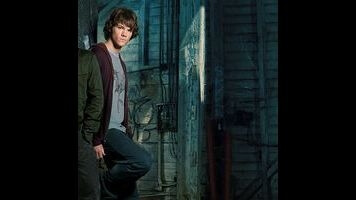Supernatural: "I Believe The Children Are Our Future"

You ever see "It's A Good Life"? It's one of the bleakest episodes of the Twilight Zone, and Joe Dante even did a version of it for Twilight Zone: The Movie. Much as I love Dante, though, it's best to skip his remake and stick with the original, a nasty story about what happens when a little boy has all the power in the world. The boy isn't evil, exactly. Kids usually aren't. Evil requires an understanding of consequence and mortality, the knowledge that choices have lasting, and often impossible to predict effects, and kids don't start struggling with that sort of thing till puberty. But the little boy in "Good Life" might as well be evil, given what he does to his family and the people at hand. Because no one is able to discipline him, he acts out constantly, and his slightest whim has a horrible, hateful reality. Living around a kid like that, you'd spend the rest of your (probably short) life trying to appease a will and a mind that, given its lack of maturity, won't ever stay appeased for long. And once you make a mistake, that cornfield, from whose bourn no traveler returns, is only a wish away.
Jesse, the cause of Sam and Dean's woes in "I Believe The Children Are Our Future" (and a curse on the Supernatural folks for getting that song stuck in my head), isn't quite as obnoxious as Bill Mumy was in "Good Life," but his beliefs have the same devastating effect on the locals. He thinks itching powder makes you itch obsessively, so a young woman scratches her way right into her brain. A guy gets electrocuted on the world's first non-Joker related joy buzzer death, a guy gets his teeth yanked out by a really butch Tooth Fairy, and somebody holds a face that actually sticks like that. Oh, and Dean gets hairy palms; draw your own conclusions.
The first part of "Children" didn't really grab me. We've seen this kind of thing before, starting with the first Loki episode that had urban legends coming to life. Sam even mentions tricksters while he and Dean are trying to figure out what's causing the problems. Things get a lot more interesting, though, when they determine the source of the problems, Jesse, an eleven year-old kid who's a lot sharper than you'd expect. It's funny, really—he immediately questions Sam and Dean's FBI identities (Page and Plant? Man, Dean isn't even trying this week), but he buys his dad's explanations, like the killer joy buzzer, without question. Because that's what kids do, at least the ones that come from good parents. When they start getting paranoid, it's outsider information they question, because asking the hard questions about one's parents means risking what keeps them safe.
 Keep scrolling for more great stories.
Keep scrolling for more great stories.
